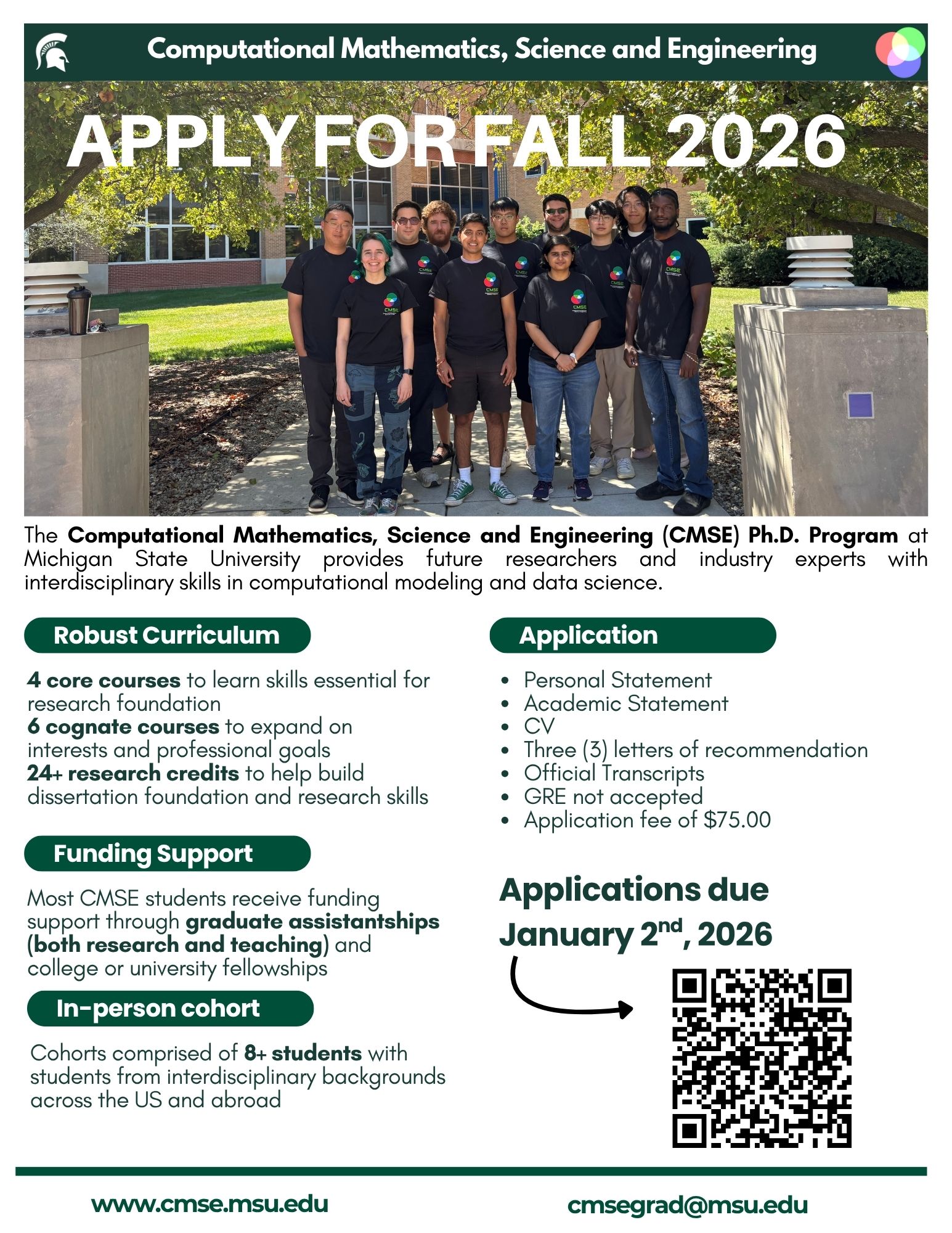Dissertation Defense of CMSE Alex McKim
Department of Computational Mathematics, Science & Engineering
Michigan State University
Dissertation Defense Notice
August 5 2024, 1:30 EST
https://msu.zoom.us/j/96715929539
Meeting ID: 967 1592 9539
Passcode: 491290
DATA-DRIVEN COMPUTATIONAL APPROACHES TO UNRAVEL AND INTERPRET THE POLYGENIC ARCHITECTURE OF HUMAN COMPLEX TRAITS AND DISEASES
By Alexander McKim
Abstract:
The genetics and mechanisms underlying most human traits and diseases can be very
complex, where the number of true gene associations can number in the many hundreds.
Thus, when trying to better understand a trait/disease, researchers are faced with
two main challenges; missing knowledge of which genes are truly related to the trait/disease,
and understanding how those genes work together through molecular pathways. These
knowledge gaps make it hard to translate large scale genetic information into actionable
hypotheses. The overarching goal of the research presented in this dissertation is
to develop methods that address these challenges in order to gain a better understanding
of the etiology of complex traits and diseases. We worked towards this goal by developing
general-purpose computational frameworks that leverage vast publicly-available datasets
— genome-scale gene networks, gene functional annotations, thousands of gene expression
signatures, and experimentally-derived gene-phenotype associations in humans and model
organisms — to resolve large gene lists associated with highly polygenic disease into
relevant genes, pathways, and critical interactions. Together, these findings reveal
nuanced understanding of disease mechanisms. Overall, this research helps get away
from treating each disease as a single well-defined condition, and instead find mechanism-based
disease subtypes and use these insights to find novel diagnostic and treatment avenues.
Committee Members:
Dr. Arjun Krishnan (chair)
Dr. Wen Huang
Dr. Shinhan Shiu
Dr. Jianrong Wang



